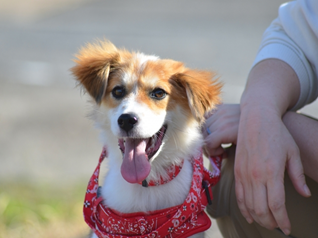In this article, the author will explain the requirements and procedures for bringing pet dogs and cats into Japan from non-rabies-free regions. The main points of the article are as follows.
- Each pet dog or cat must be microchipped.
- The dog or cat must be vaccinated twice against rabies.
- The dog or cat must undergo a rabies antibody test.
- The dog or cat must wait for 180 days after a blood sample is taken for the rabies antibody test.
- The importer (pet owner) must notify an Animal Quarantine Service office at least 40 days prior to arrival in Japan by submitting a notification.
- The dog or cat must undergo a health examination in an exporting country within 10 days before entering Japan to obtain a health certificate certified by the veterinary authority of the exporting country.
- Upon arrival in Japan, the importer submits the health certificate endorsed by the veterinary authority of the exporting country, an application for animal import inspection and/or an “approval of import inspection” letter, and other documents, and applies for animal import inspection.
In this article, the term “dog” refers to a mammal of the species “Canis lupus familiaris” and the term “cat” refers to a mammal of the species “Felis catus“.
Introduction
Planning to move to Japan with your furry friend? Whether you’re relocating or returning home, bringing your dog or cat from a country where rabies is still present requires careful preparation. This guide explains the steps you need to follow to make sure your pet can enter Japan safely and legally.
Note: Most countries are considered “non-designated” (not rabies-free), except for Iceland, Australia, New Zealand, Fiji, Hawaii, and Guam.
Step-by-Step Requirements
1. Microchip Implantation
Your pet must have a microchip that meets ISO standards (11784/11785). This should be done before any rabies vaccinations. Make sure the chip can be read by a standard scanner at every vet visit.
Microchips with a 15-digit number starting with 900202 are currently not accepted for entry into Japan. (since April 7, 2023)
2. Rabies Vaccinations
Your dog or cat must be at least 91 days old for the first rabies shot.
- Two rabies vaccinations are required.
- The second shot must be given at least 30 days after the first and while the first is still valid.
- Only inactivated or recombinant vaccines are accepted—live vaccines are not allowed.
3. Rabies Antibody Test
After the second vaccination, a blood sample must be taken and sent to a lab approved by Japan’s Ministry of Agriculture.
- The test must show an antibody level of 0.5 IU/ml or higher.
- The result is valid for 2 years from the date of the blood draw.
The blood sample can be taken on the day of the second rabies vaccination. However, it is highly recommended that the blood be drawn two weeks after the second rabies shot.
4. 180-Day Waiting Period
Once the blood is drawn, you must wait 180 days before your pet can enter Japan.
- Day 0 is the day the blood sample is taken.
- Plan your travel so your pet arrives after 180 days, before the rabies vaccine expires, and within the validity of the antibody test.
- If your pet arrives too early, they may be quarantined in Japan for up to 180 days.
Returning to Japan with a Pet That Was Previously Exported
If your pet was vaccinated twice before leaving Japan and has had yearly rabies shots since, they may be exempt from the 180-day wait.
- If the previous antibody test is still valid, no new test is needed.
- If it has expired, a new test is required.
- A result of 0.5 IU/ml or higher allows re-entry without the waiting period.
Pre-Departure Procedures
1. Notify Japan’s Animal Quarantine Service
At least 40 days before arrival, submit a notification to a quarantine office at your expected port of entry.
- You’ll receive an “Approval of Import Inspection” letter.
- Print or save this letter and bring it with you.
- If you need to make changes, submit a “Modification of Notification” form.
- Note: You cannot change the arrival date to an earlier one, increase the number of pets, or swap pets after the scheduled date.
2. Health Certificate
Within 10 days before travel, your pet must be examined by a vet.
- Dogs must be free of rabies and leptospirosis symptoms.
- Cats must be free of rabies symptoms.
- The health certificate must be endorsed by your country’s veterinary authority.
The certificate must include:
- Pet’s age or birthdate
- Microchip number and implantation date
- Rabies vaccination details (dates, type, manufacturer)
- Antibody test details (date, lab name, titer level)
- Health exam results
- Other vaccinations or parasite treatments (optional but recommended)
You can use Japan’s official health certificate form (Form AC for non-designated regions).
You may ask Japan’s Animal Quarantine Service to review the certificate before it’s officially endorsed.
Upon Arrival in Japan
At the airport or port, your pet will undergo an import inspection.
You’ll need to submit:
- Application for Animal Import Inspection and/or “Approval of Import Inspection” letter
- Rabies antibody test report
- Endorsed health certificate
- Air waybill or cargo documents (if applicable)
- Any other documents requested during the notification process
If everything checks out, your pet will be released within 12 hours.
If there are issues, quarantine may last up to 180 days, at your expense.
Need Help?
For more details, visit the Japan Animal Quarantine Service website or consult a pet relocation specialist in Japan.





